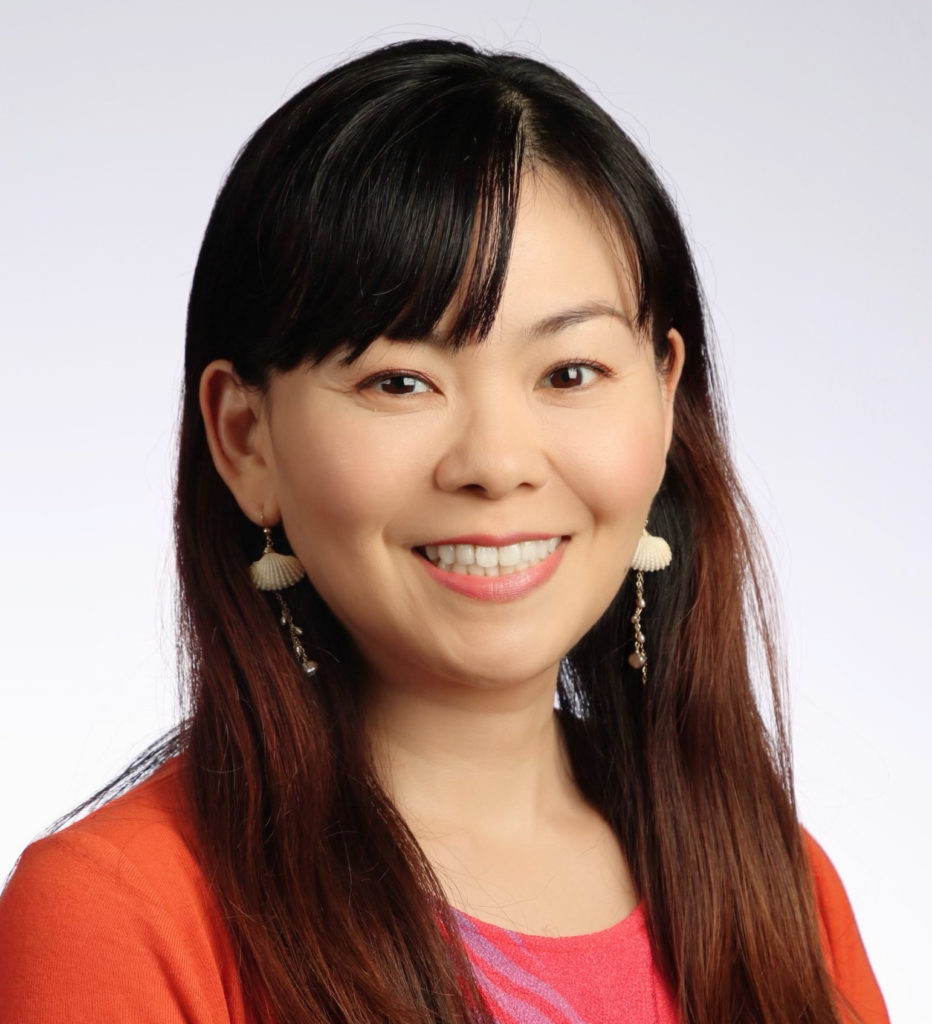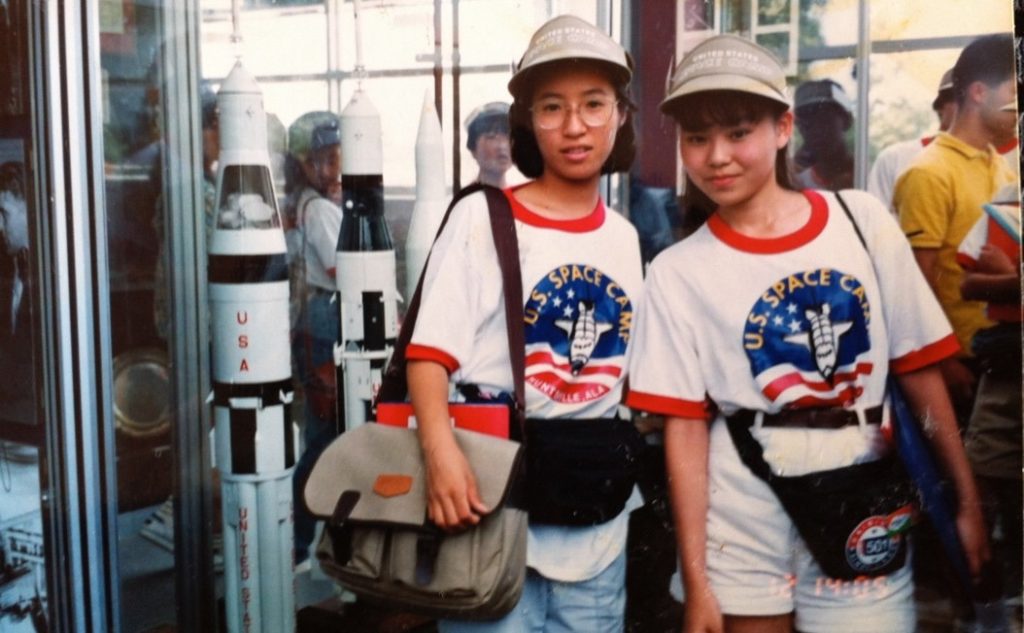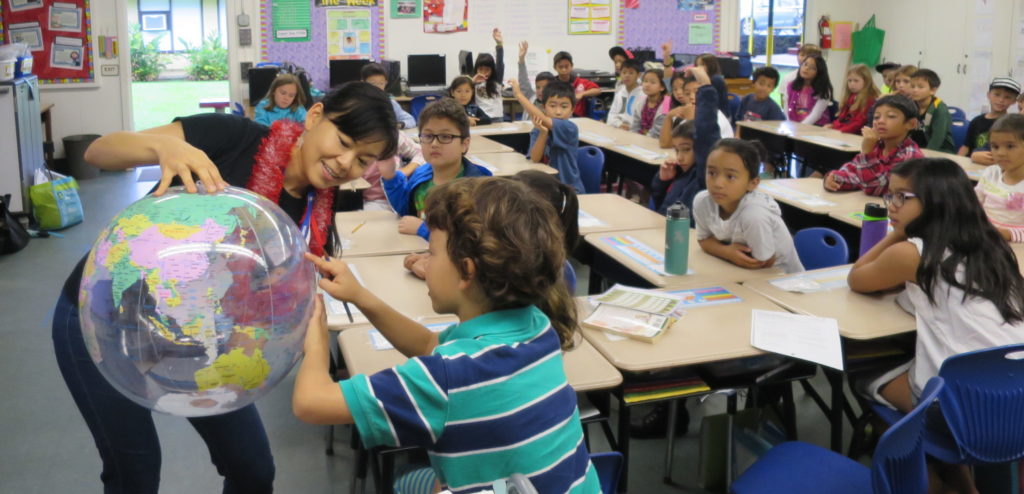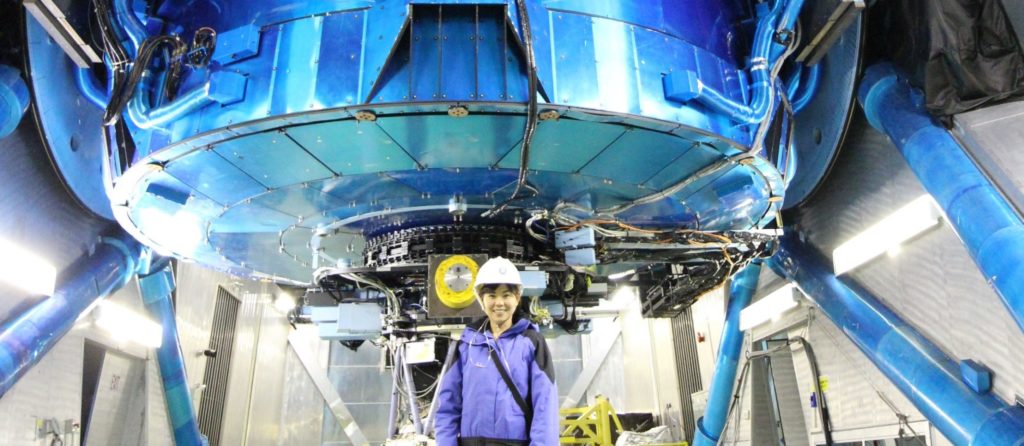
AS AN ELEMENTARY SCHOOL STUDENT growing up in Okinawa, Yuko Kakazu wanted to become a writer or novelist. However, when her middle school teacher recommended that she read a Japanese science magazine called Newton, it opened up an entirely different world for her. Kakazu became intrigued with the spectacular pictures of galaxies, nebulas, and solar systems, and was impressed with buzzwords like Einstein’s Theory of Relativity. But, it was an ad in the magazine for NASA’s Space Camp in Huntsville, Alabama that changed the trajectory of her career path when she half-jokingly asked her parents if she could attend — and to her surprise — they said yes.
Kakazu was fortunate to have parents and family that were very supportive of her, but she found that was not the case everywhere. She was often told by teachers that she was not good enough and that she could not compete with the students from the Japanese mainland. Despite the criticism and lack of encouragement, Kakazu earned her way into Japan’s prestigious Tohoku University to study physics. But, she found more of the same there.

“My chemistry professor told me that women shouldn’t study physics,” said Kakazu. “I also saw my female chemistry classmates struggling because they were assigned projects that were not very interesting or challenging.” Fortunately, Kakazu found a very different environment in physics with very supportive and fair professors.
In her junior year, Kakazu embarked on a student exchange scholarship program to the University of California, Santa Cruz (UCSC) and gained her first exposure to astronomy in Hawai‘i through telescope observations using the W.M. Keck Observatory atop Maunakea on Hawai‘i Island. The following year, she returned to Tohoku University and completed her Bachelor of Science degree in astrophysics and physics.
Impressed by her experience at UCSC and the wealth of opportunities for foreign students in this country, Kakazu decided to attend graduate school in the U.S. Because of the University of Hawai‘i’s unparalleled access to telescopes and abundant research opportunities, it became her number one choice. She was accepted to the University of Hawai‘i at Mānoa’s Institute for Astronomy and received both her master’s degree and PhD from the world-renowned institute. Kakazu then embarked on a globetrotting research journey that took her to the Institut d’Astrophysique de Paris in France, the California Institute of Technology and the University of Chicago.
“In France, I was amazed to see so many women astrophysicists and that about 50 percent of the faculty there were women,” said Kakazu. “People were very encouraging both in France and the U.S. so it made it easier to conduct my research.”
As an observational astronomer, Kakazu’s research focuses on galaxy formation and evolution, using a variety of instruments that provide multi-wavelength imaging and spectroscopic data that measure high redshift object movement of galaxies and their chemical composition. While the average layperson may have difficulty connecting her research and astronomy in general to everyday life, she feels it is quite the contrary.
Astronomy is considered by many to be the oldest natural science, dating back thousands of years. To many ancient cultures, it has served an important role in terms of religion, timekeeping, crop planting calendars, navigation and other
– Yuko Kakazu
aspects of everyday life.
In 2013, she returned to Hawai‘i to become the education and outreach specialist for the National Astronomical Observatory of Japan’s Subaru Telescope on Maunakea. While working on a joint presentation with the ‘Imiloa Astronomy Center at the University of Hawai‘i at Hilo, the world’s first contemporary science education center that promotes indigenous culture, Kakazu discovered similarities between Hawai‘i and Okinawa in terms of culture and astronomy, that helped her to establish a connection with her own roots.
“In Okinawa, indigenous knowledge was used to create scientific instruments and develop calendars to determine the movements of the sun, moon and constellations to mark the changing seasons, some of which are still used today,” said Kakazu, who admittedly was unaware of this because she was too immersed in her study of modern astronomy. “Similarly, the early Polynesians used the stars to navigate thousands of miles of ocean to reach Hawai‘i and other parts in the Pacific. They were all amazing scientists.”

Building upon what she has learned, Kakazu is currently engaged in an educational program that seeks to create awareness and access to STEM, while developing a cross-cultural relationship between underserved and underrepresented students in Okinawa and Hawai‘i. Known as SHIMA (Japanese for island), the program was launched last year by the Okinawa Institute of Science and Technology (OIST) featuring sustainability and marine sciences as topics. With this year’s program focusing on sky, space and land, Kakazu is preparing the astronomy segment.
“Unfortunately, poverty and a lack of access to educational opportunities remain major issues in Okinawa and to underrepresented populations here in Hawai‘i,” said Kakazu. “However, through outreach programs like this and others, we can show students that there is a career path, and let them know it’s possible for them to become scientists.”
Kakazu first began her association with OIST in 2014 by serving as a guest speaker at a number of events, including gender summits and STEM workshops for students. In 2019, she became a trustee of the OIST Foundation and was named its education ambassador in 2021. She hopes to make OIST an international hub of student exchange programs focused on science, indigenous knowledge and culture.
“Without my education, I wouldn’t have been able to come this far,” said Kakazu. “While growing up in Okinawa, I never saw a scientist or even knew I could become one. However, because of my parents’ belief in me, I was able to become the first woman in my family to earn bachelor’s, master’s and PhD degrees.”
She has the same belief for all students.

